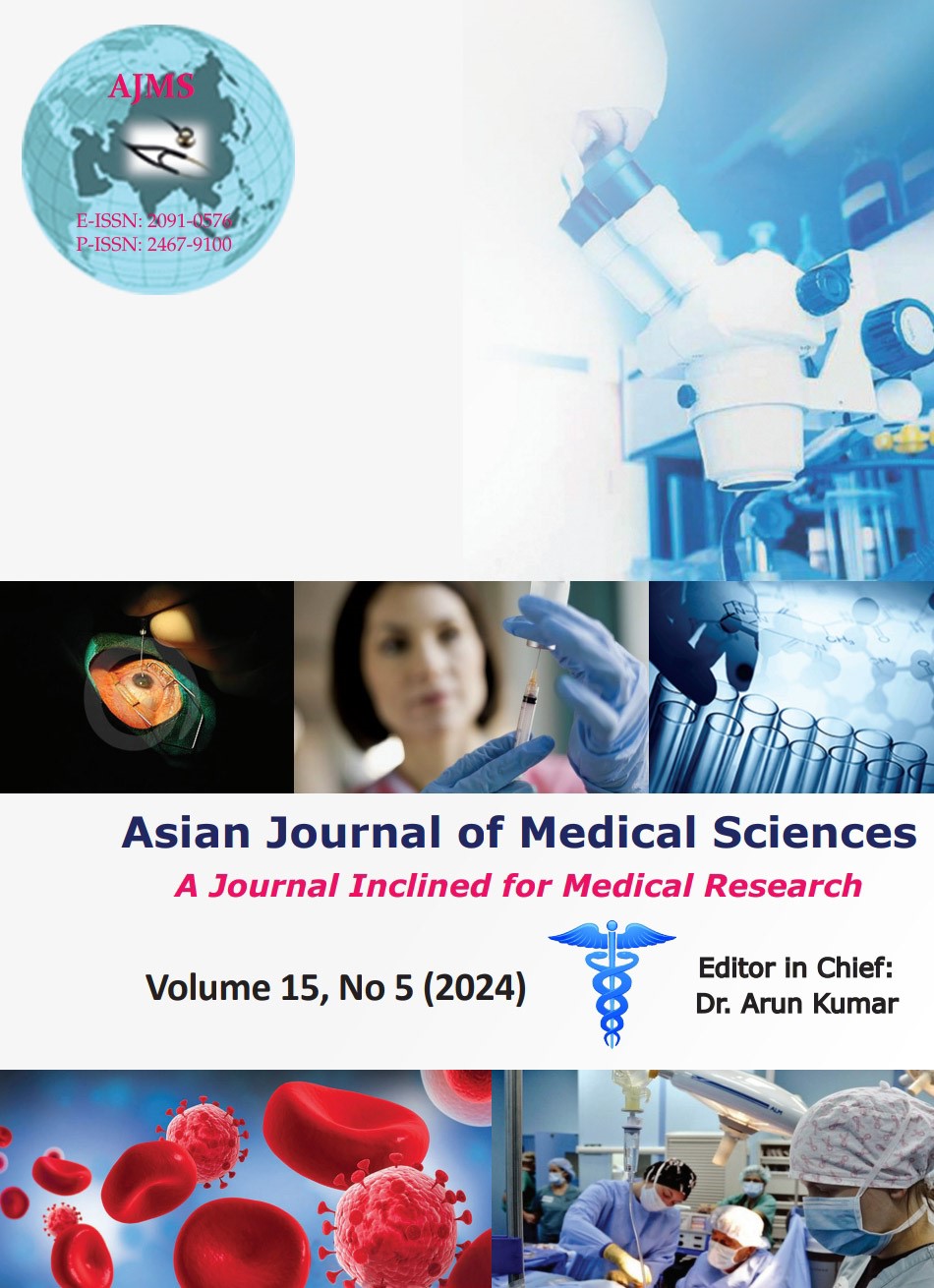Pruritic urticarial papules and plaques of pregnancy: An unusual case report from a tertiary care hospital of the Eastern part of India
DOI:
https://doi.org/10.3126/ajms.v15i5.26302Keywords:
Pruritic; Urticaria; Plaques; Papules; Pregnancy; Primigravid; Pruritic urticarial papules and plaques of pregnancyAbstract
Pruritic urticarial papules and plaques of pregnancy (PUPPP) is a rare dermatitis of unknown etiology first diagnosed in 1979. It occurs most commonly in the 3rd trimester of pregnancy. Postpartum presentation is extremely rare. Treatment modalities mostly involve the relief of symptoms. We are going to report here one case of a 24-year-old primigravid female who presented in the 9th month of the gestational period with generalized pruritic eruptions in a tertiary care hospital in the Eastern part of India. These eruptions were erythematous, hyperpigmented, and papular, which began within the striae distensae of the abdomen and progressively spread on the skin of upper and lower limbs, trunk, and buttocks. After the delivery of a full-term male child, there was an aggravation of the symptoms such as itching and disturbed sleep. There was also increased spread of the lesions over the skins of the mentioned areas, which persisted for 6 weeks of the postpartum period. The lesions and associated symptoms gradually subsided with topical application of corticosteroids and hydroquinone along with oral antihistaminic for prolonged periods. Our objective behind reporting this case is to make clinicians aware of PUPPP as a differential diagnosis of peripartum and postpartum pruritic eruptions for prolonged periods.
Downloads
42
39
Downloads
Published
How to Cite
Issue
Section
License
Copyright (c) 2024 Asian Journal of Medical Sciences

This work is licensed under a Creative Commons Attribution-NonCommercial 4.0 International License.
Authors who publish with this journal agree to the following terms:
- The journal holds copyright and publishes the work under a Creative Commons CC-BY-NC license that permits use, distribution and reprduction in any medium, provided the original work is properly cited and is not used for commercial purposes. The journal should be recognised as the original publisher of this work.
- Authors are able to enter into separate, additional contractual arrangements for the non-exclusive distribution of the journal's published version of the work (e.g., post it to an institutional repository or publish it in a book), with an acknowledgement of its initial publication in this journal.
- Authors are permitted and encouraged to post their work online (e.g., in institutional repositories or on their website) prior to and during the submission process, as it can lead to productive exchanges, as well as earlier and greater citation of published work (See The Effect of Open Access).




